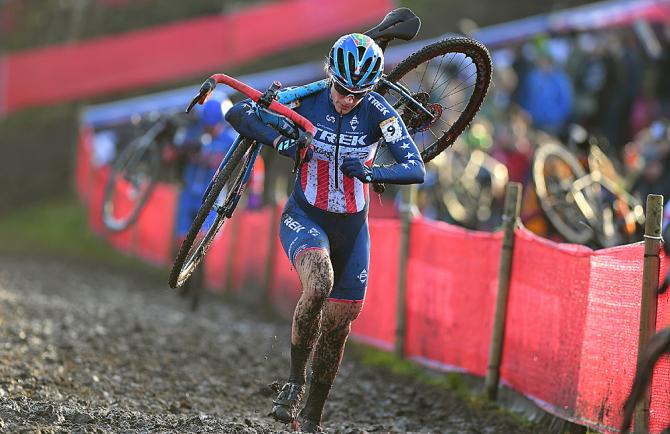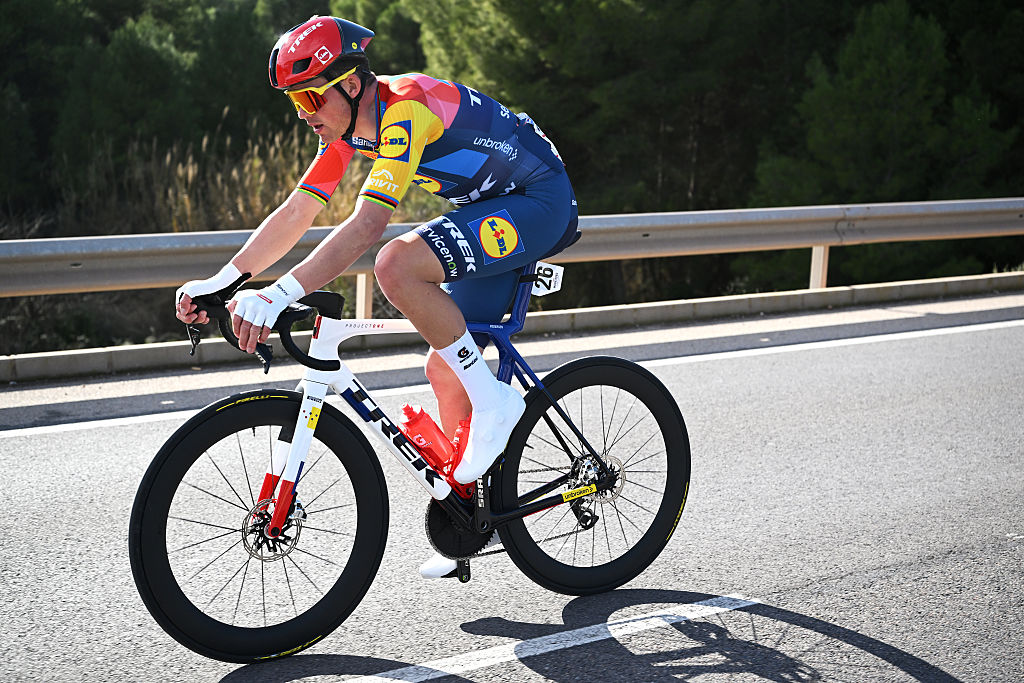Compton: I'm 39 years old and finally learning how to race my bike
Change of scenery breathes new life into US champion's career
The latest race content, interviews, features, reviews and expert buying guides, direct to your inbox!
You are now subscribed
Your newsletter sign-up was successful
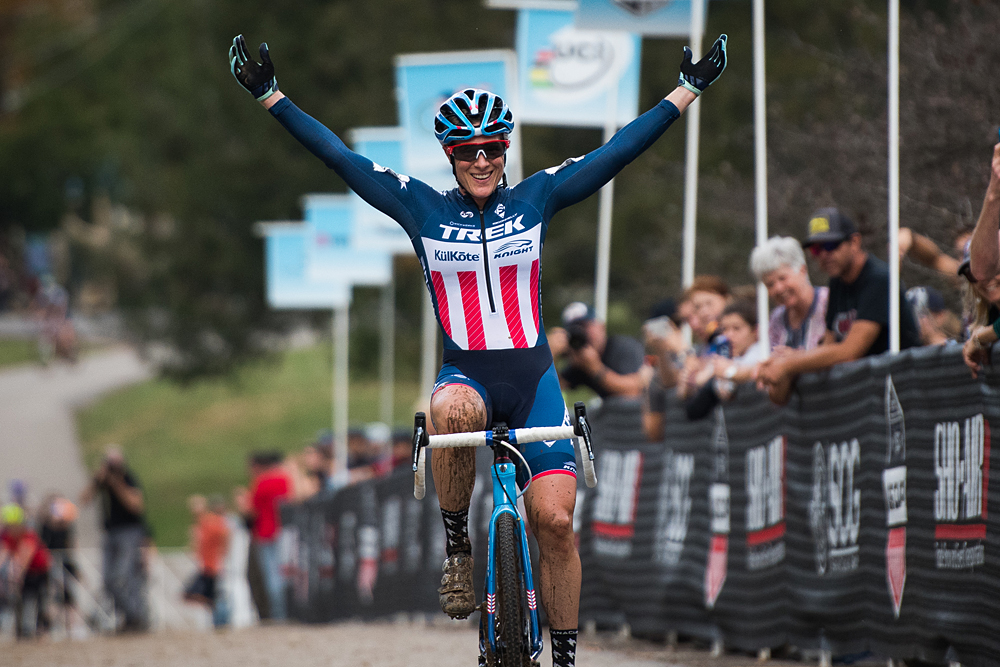
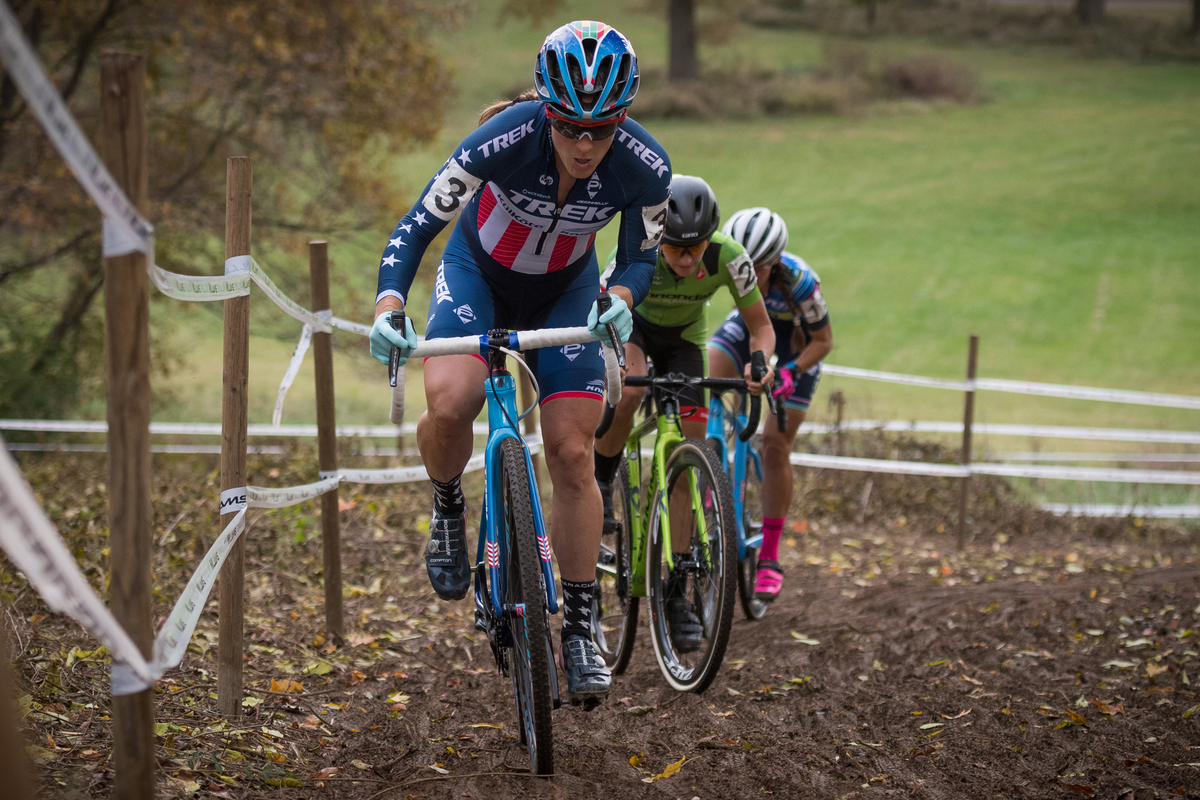
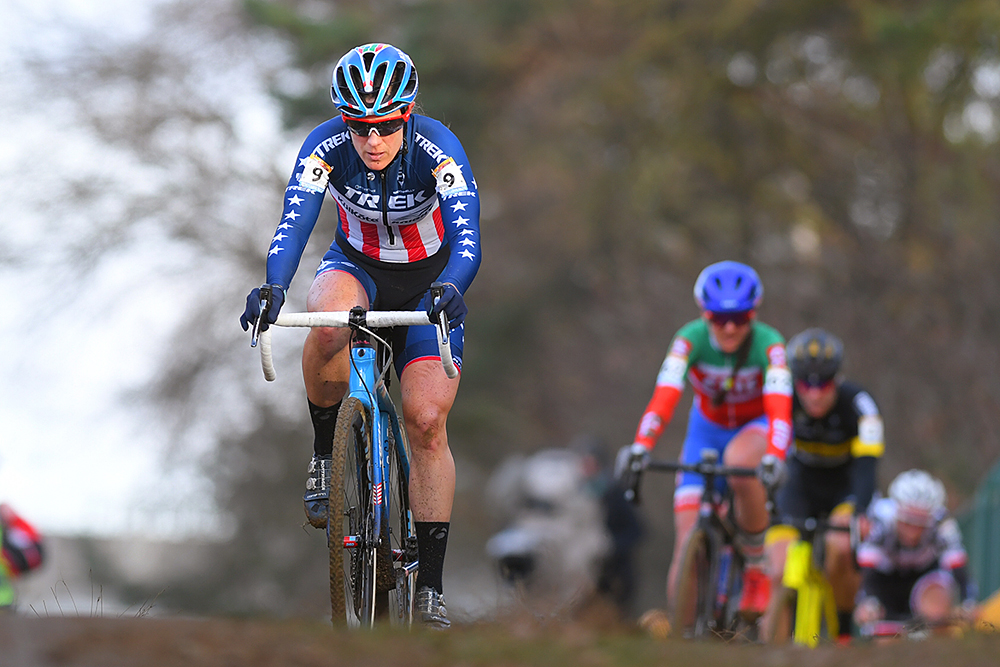
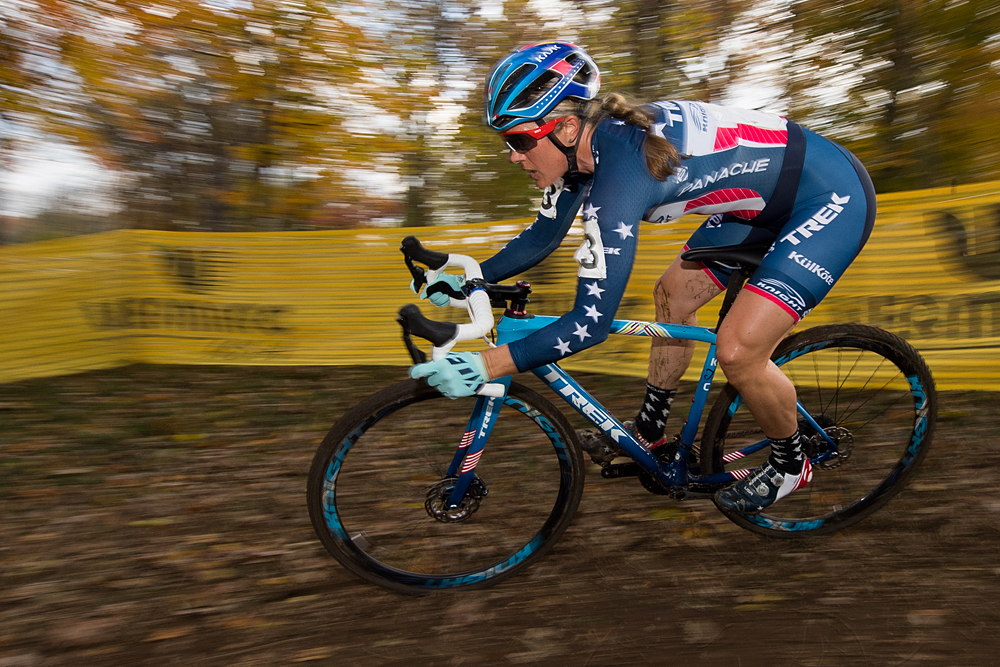
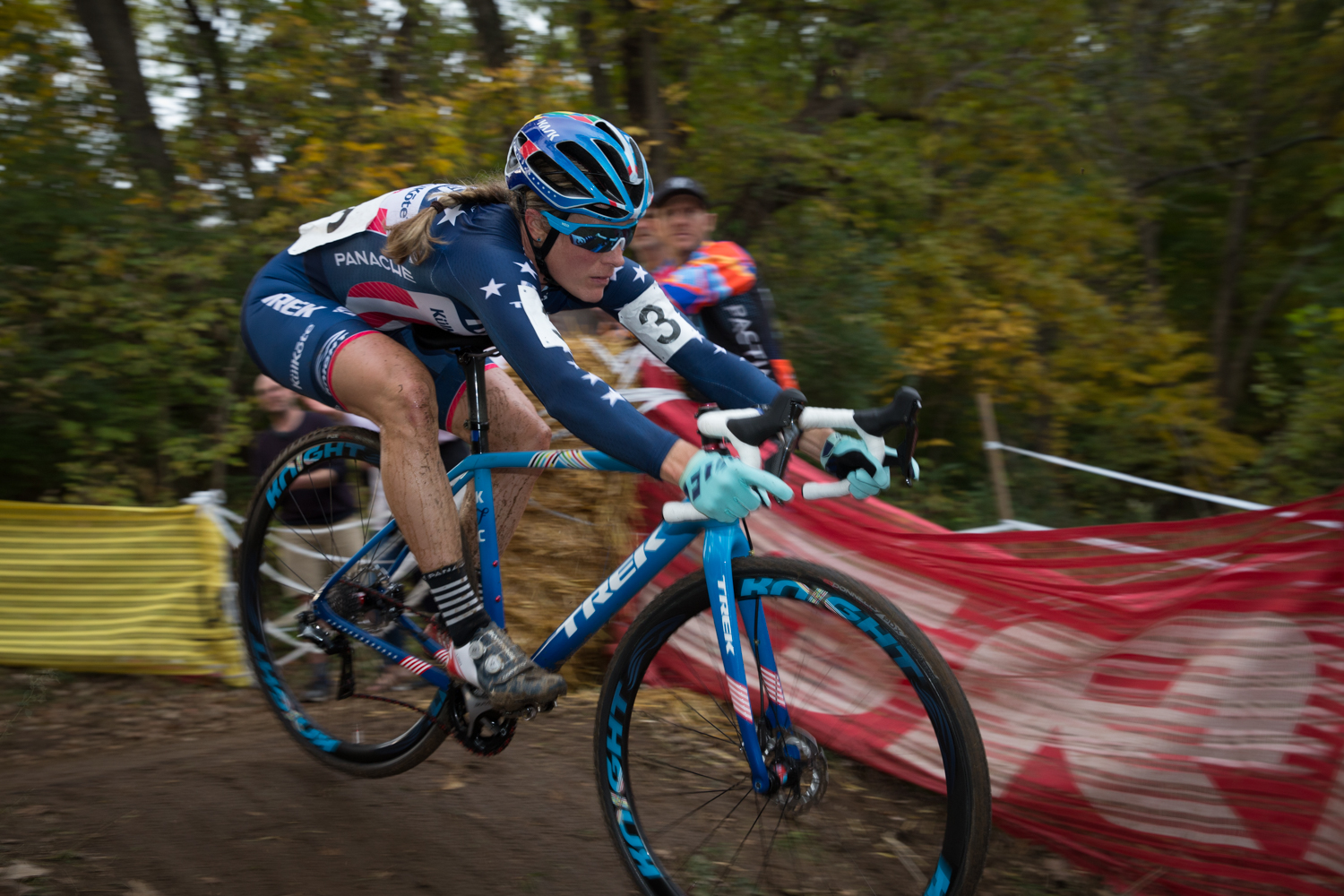
For 13 seasons, Katie Compton has dominated the cyclo-cross scene in the USA, winning as many consecutive national championship titles. She's also had stellar results at the international level, which have included back-to-back World Cup series victories and four medals at the World Championships.
She is also role model and representative of women's cyclo-cross. She recently spoke about her asthma issues and gave her opinion on Chris Froome's salbutamol case.
For the first time in her career, Compton committed to a full season of racing in the homeland of the sport, Belgium, and says that racing every week against deep fields of talented women has made a difference.
"I'm definitely feeling stronger, I'm racing smarter," Compton tells Cyclingnews from her home in Boulder, having returned temporarily to defend her US title this week in Reno. "I really like the harder racing over there. I think it pushes me more. It's a little bit of everything.
"In the US, I won a lot of races off the front, and you just don't learn how to race a bike that way, as much fun as it is. Now, I'm getting podiums but I'm not winning that often, but I'm learning how to race my bike - which is odd, I'm 39 years old and finally learning how to race my bike.
"It's different, racing tactically against the people around you. I'm feeling more confident and having more fun with it. When you have a group of 8-10 on the first lap, you don't panic, because you know you have four more laps to go and it will dwindle down and you have to keep pushing hard."
Three months in Belgium also paid off with a historic win in the DVV Verzekeringen Trofee, as Compton clinched the overall series, becoming the first American to do so. The series was a target from the outset since her title sponsor Trek Bikes has secured rights to live stream most of the races.
The latest race content, interviews, features, reviews and expert buying guides, direct to your inbox!
She came out swinging, taking out a solid victory in Ronse, then making the podium in the Koppenbergcross, Flandriencross, Essen, Scheldecross and Loenhout, before putting in such a commanding victory in Baal at the GP Sven Nys on New Year's Day that she sealed the series win.
"I wasn't thinking about that in the race," Compton said of clinching the series. "I'm always trying to get as much time as I can. I think Maud [Kaptheijns] told me, 'you don't have to finish the last race now'."
The DVV Trofee is unique in that it is based on total race time. Each skipped race is a five-minute penalty, and Compton leads Nikki Brammeier by 5:53. But she still intends to race the final round in Lille and will target the series again next year with another full Belgian campaign.
"I really wanted to win the series and be on the podium in each race and to be consistent," Compton said. "It's an eight-race series, and it's a tough one because all the hitters are there. I knew it was going to be hard, but after having a bad start to the World Cup races, I just shifted my focus to the DVV instead."
After so many years of traveling back and forth across the Atlantic Ocean, suffering jet lag, illness, mysterious leg pains and asthma attacks, Compton has finally found her stride in Belgium, but she has no regrets about not trying a full season there sooner.
"I feel like there's a time for everything, and the way I've set up my career, it kind of depends on how I'm feeling, what my goals are, and what my sponsors want me to race. It's a good time for it. I've always wanted to do it, but things have gotten in the way of it. Now I'm glad I had the opportunity to do it, and I don't think I could have done it earlier and been successful.
"Next year I'll do it again for sure, because I have a two-year contract with Trek, and they're streaming the DVV races again next season. So I'll race the series and stay in Belgium again next year, then I'll re-evaluate. I'm still riding well, I am enjoying it."
Fun and fast racing
Compton has demonstrated her world-class talent for many seasons, but her consistent success in such stacked fields shows a new level, one that even stand-out talents like Marianne Vos and Pauline Ferrand Prevot were not yet able to match.
"The racing is faster," she explains. "I've noticed because I've been doing it for so long. It's good - even Marianne Vos after Antwerp said, 'I forgot how hard this is, you guys are really fast'. We've been working at it. It's nice that the racers who've been racing all season are still at the front, instead of the riders who pop in fresh from training and still get results."
Compton says that while the races are still hard, being there every week and knowing the competition has helped her be more relaxed about it.
"I know I can be patient and ride my race, and I get to the front - maybe not on the front, but there's a chance for that podium. I've always been that kind of racer, that if I have a bad first lap I can recover and think about the finish. It's about not being too eager or worried about the first lap or two and just focus on the finish."
The season has had its ups and downs - even her win in Baal came in spite of an ugly first-lap face-plant on a steep, muddy drop. She's taken the bloopers with good humour.
"Apparently there's a hole in that drop, on the right - nobody wants to go there. I was aiming for the rut, but I think the hole was under water because I couldn't see it. It just stopped my front wheel dead, and I was over the bars before I even knew it.
"It wasn't that bad because I can tuck and roll pretty well, but I landed in a puddle, and I was covered in muddy water - it was all over my face, coming down my neck from my helmet. I'm like, 'oh, this is gross'. Then I'm paranoid about getting a bacterial infection from the mud in Belgium - I'm like 'oh god, it's all over me now - don't swallow anything!'"
Compton also had to take several crushing defeats at the hands of world champion Sanne Cant in her stride - one in particular, a hard-fought Scheldecross in Antwerp where the two were elbow-to-elbow until the final turns.
"Sanne's got this killer finishing kick. I know it's going to come, I know it's there, but usually I just can't match it. I don't know if it's obvious on TV, but when she goes, she goes and it's usually the last 500m. It's like yep, that was the sprint, I missed it again!"
Getting respect
Compton has been on the scene long enough that she remembers the days when the women were often combined with the junior men's races because the fields were too small.
The growth of women's cyclo-cross has been so strong that the size and depth of the women's fields have out-paced the men's in many races. Previously relegated to early morning slots, the women are now in prime time just before the elite men, on television, and no longer derided by the race commentators.
Compton says the respect is "a long time coming".
"The Belgian fans are watching the women's races because they're so exciting. It's amazing the difference in the fan support and cheering - it's definitely improving. People are excited about our races, that makes a big difference."
It helps that the men's races have been an unfortunate series of blow-outs, with either Mathieu van der Poel or Wout Van Aert - but mostly Van der Poel - winning by large margins.
"Van der Poel is so amazingly fast and good. I don't know who's going to challenge him anymore. Wout barely does on his best day. It's tough. In the women's race, anyone on the front row - even the second row - can win the race. That's 16 riders you can choose from for a podium of three. And then you have Pauline [Ferrand Prevot] coming from the back row..."
The UCI's rule changes for race schedules and prize money have been two of the biggest influences in the quality of women's racing, Compton says, but there are other factors.
"The TV coverage makes a difference and increased team sponsorship dollars from the teams for the women. It all helps, it all makes it more of a legit[imate] profession instead of a hobby. Then when it's a profession, they can train more and get faster, increasing the depth in the field, which makes more exciting racing.
"I remember when I first started there were one or two women making any money. Now there are 10-20 women on the start line actually getting support."
The field sizes have been bigger for the women because more of them line up without getting start money from the race organisers, whereas men will only start with a contract.
"So the men's fields end up being smaller because the women just want to race," she says. "I think it's funny, because the men's fields keep getting smaller, and not as deep and competitive as the women. I love seeing 65-70 women at the start."
However, the women's races still vary wildly in length, with some as short as 38 minutes and others pushing 50 minutes. The UCI rules only specify a range of 40-50 minutes, but Compton would like to see that tightened to a 45-minute lower limit, saying that some officials don't support having the women race another lap.
"It's really easy to do the math and say this is how much longer you have to go," she says. "I think some officials want to see the women race longer, and some don't. I think TV is also a part of it because they like to have enough time for the men's interviews. If we run 50 minutes, they're worried about the ratings. 45-50 minutes would be good."
She points to the Namur World Cup, won by Evie Richards, as an example - her winning time was 38:49. Although another lap might not have changed the outcome there, in other races it would.
"Some riders are stronger at the end, and if the races are short it's a different result. I feel like they should make it an appropriate race time and give people who start slower some time. Sanne sometimes starts slower, and she comes on strong the last couple laps. You take away one of those laps and the result might be different."
Title number 14?
Compton has always seems a bit laissez-faire when asked about her ambitions for major races, but is heading into the USA Cycling Cyclo-cross National Championships in Reno, Nevada with a calm confidence.
Despite being at sea level for perhaps the longest stretch of her career, she jumped straight back into training in Boulder, Colorado before heading to Reno - which is lower in altitude. She's not concerned about the elevation having an effect, at any rate.
"I think if my legs are strong, which I think they are, my lungs don't have to work as hard. I think it'll be OK. But I can use it as an excuse if I don't have a good result," she said, laughing.
"I adjust to altitude pretty easily, I go back and forth a lot. The more you go up and down the more your body adapts quickly."
Stateside, her main competition will come from Katie Keough and Ellen Noble - two talented young riders - but she feels confident. When it comes to the World Championships, she sounds more sceptical about her chances.
"I don't know... I've won there before, I've gotten on the podium once and won once, I like the course. It's fun and technical, either up or down. But Worlds is different from during the year," she says.
"People come in really fit and just peaking for Worlds. And then you've got some good climbers - I can have a good day on a climbing race, but I think it's going to be Pauline, Nikki [Brammeier], Lucinda [Brand], Annemarie Worst and Eva Lechner's good uphill. Sanne's obviously strong too. It's a tough one to call. Helen Wyman also climbs well. Katerina [Nash] and Evie Richards, too. 10 people could win that day. I think our race will be the most exciting.
"I want to have a good race, and if I do I can be on the podium, but honestly I've had so many crappy world championships lately I'm keeping my expectations realistic. Hopefully, I'll prepare well for it and have good legs for it."
Podium or no at Worlds, Compton is looking forward to another season next year in Belgium and still not thinking about the eventual end of her career.
"I really like racing my bike, and being over there doing it more it took a lot of the stress and anxiety out of it. I'm enjoying every race, and that makes a big difference. I feel like this season has been one of my most fun, and being in Belgium is a lot easier than I thought it would be."
Tune into Cyclingnews for live streaming coverage of the USA Cycling Cyclo-cross National Championships on Sunday, January 14.

Laura Weislo has been with Cyclingnews since 2006 after making a switch from a career in science. As Managing Editor, she coordinates coverage for North American events and global news. As former elite-level road racer who dabbled in cyclo-cross and track, Laura has a passion for all three disciplines. When not working she likes to go camping and explore lesser traveled roads, paths and gravel tracks. Laura specialises in covering doping, anti-doping, UCI governance and performing data analysis.
